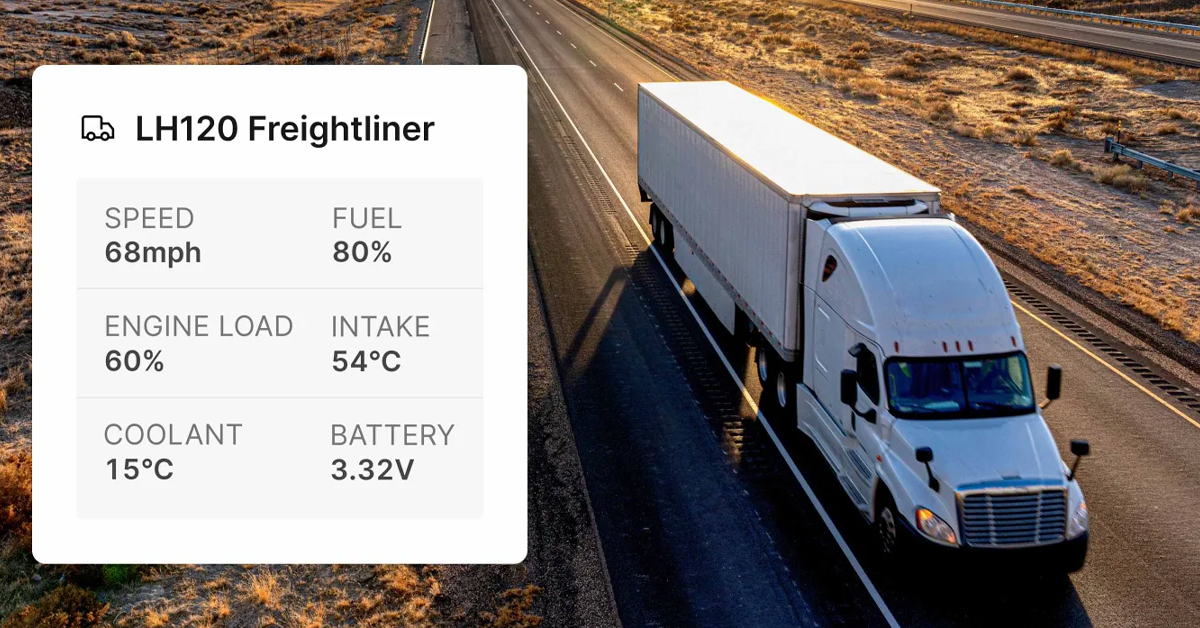GPS Fleet Management: The Roadmap to Safer, More Efficient Operations
In today’s fast-paced world, where every penny counts and safety is paramount, efficient fleet management is more critical than ever. But with the advancements in technology, particularly GPS fleet management systems, there’s a golden opportunity for fleet managers to revolutionize their operations. Let’s embark on a journey to explore how GPS fleet management systems are shaping the landscape of modern fleet operations, enhancing efficiency, and ensuring safety every step of the way.
Evolving Landscape of Fleet Management
Far from a mere buzzword, safety is the cornerstone of effective fleet management. Accidents not only endanger lives but also inflict substantial financial burdens through vehicle downtime and repair costs. By prioritizing accident prevention, organizations underscore their commitment to minimizing downtime and ensuring operational efficiency.

Safety: The Cornerstone of Effective Operations
Fleets are adopting a comprehensive safety approach, revamping accident prevention programs to target the root causes of incidents. This proactive strategy, often facilitated by advanced solutions like the Eagle-IoT Accident Management Module, goes beyond simply understanding the location of an accident. The module enables detailed scene reconstruction, providing valuable insights into contributing factors. By leveraging these insights to address driver behaviors and cultivate a culture of safety responsibility, fleets can achieve significant reductions in accidents and enhance overall efficiency.
Proactive Safety Strategies: Beyond Accident Prevention
Equipping vehicles with AI dash cams and GPS trackers unlocks a wealth of real-time data. This data, encompassing driver behavior and vehicle performance, empowers fleet managers to proactively identify and address potential safety risks. Additionally, in-cabin alerts can be used to guide drivers towards safer practices.

Eagle-IoT’s Video Telematics take safety a step further by incorporating Driver Fatigue/Distraction Monitoring (DMS) and Advanced Driver Assistance Systems (ADAS). These features function as virtual coaches, actively preventing accidents and supporting drivers in their continuous improvement journey.For comprehensive review and potential use as evidence, key event-triggered video clips are automatically saved to the cloud, facilitating driver coaching and later review.
Overcoming Adoption Barriers
Implementing new safety measures can often be met with resistance and pushback. However, fleet managers should take proactive steps to address concerns and ensure transparency throughout the process. By engaging with stakeholders, providing clear communication, and addressing questions and concerns head-on, they have successfully overcome barriers to adoption.

Addressing Critical Safety Concerns
Fleet managers have identified seatbelt usage and distracted driving as critical areas for safety improvement. Eagle-IoT empowers them to address these concerns effectively:
- Real-time Seatbelt Detection: The system detects seatbelt usage in real-time, enabling immediate alerts to non-compliant drivers.
- In-cab Coaching: These devices act as virtual coaches, constantly monitoring for potential hazards like tailgating, improper headway, lane departure, smoking, and mobile phone use. They provide timely audio and visual alerts, keeping drivers focused and safe.
Fostering Accountability and Efficiency
Accountability is paramount for successful safety initiatives. Eagle-IoT empowers fleet managers with over 50+ reports and 100+ data points to analyze safety concerns and foster transparency and accountability within their operations. By leveraging technology and embracing continuous improvement, fleet managers can pave the way for a safer and more efficient fleet environment.

GPS fleet management systems are not just about tracking vehicles—they’re about enhancing efficiency, ensuring safety, and driving continuous improvement. By leveraging technology, fostering a culture of safety, and embracing accountability, fleet managers can navigate the complexities of modern fleet operations with confidence. The journey to efficiency begins with a commitment to safety, and GPS fleet management systems are the compass guiding fleets toward a brighter, safer future.


